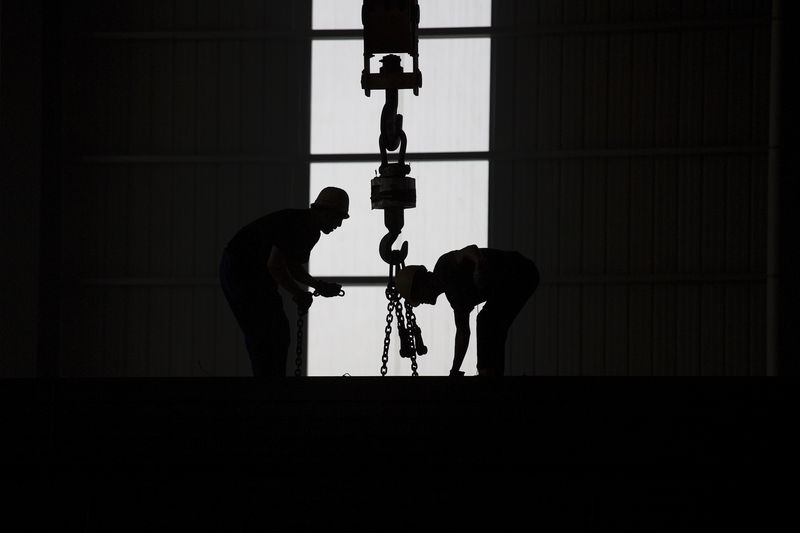By Ruby Lian and Manolo Serapio Jr
SHANGHAI/MANILA (Reuters) - Chinese steel producers have already cut export prices in response to a lower yuan, industry sources said, providing some of the first evidence of how Beijing's devaluation will help companies in the world's second-biggest economy boost sales.
China's steel industry is the world's biggest, but shrinking demand at home has forced many mills to ship record amounts abroad, with some said to be selling at a loss.
A weaker yuan will make Chinese steel products even cheaper overseas as Beijing's surprise move to devalue its currency gives the country's exporters leeway to cut prices.
Some small Chinese mills had already lowered export prices of steel products like rebar for construction use, by $5-$10 a tonne, sources familiar with the issue said.
A private mill in China's top steel producing city of Tangshan had cut export prices of billet - a semi-finished steel product - by $5 to $295 a tonne on a free-on-board basis, according to a senior official in charge of exports.
Another senior official at a state-owned trading firm said the company had no choice but to look at price cuts.
"The devalued yuan will make our exports more competitive... we have no other option but to consider cutting prices as overseas buyers are aware that Beijing has pushed the yuan lower," said the official.
If the thinking is mirrored by China's legion of steel producers there will be a fresh flood of steel going to global markets. Higher sales risk inflaming anger in countries like India, where steel makers have complained over what they call dumping by China.
Tuesday's nearly 2 percent devaluation in the yuan makes Chinese steel exports around $5 per tonne cheaper, said Seshagiri Rao, joint managing director of India's No. 3 steelmaker JSW Steel Ltd (NS:JSTL).
"It will further sharpen the ability of Chinese steel companies to export to India. They are very desperate to export steel at any price," Rao said by phone.
RECORD SHIPMENTS
China is by far the world's largest steel consumer and producer, accounting for about half of the world's output.
Other Chinese exporters have also started to cut export prices by $5-$10 a tonne, sources say, while some big mills and traders have yet to move, waiting for signs on whether Beijing plans a long-term weakening of the currency.
The yuan has fallen almost 4 percent in two days since the central bank announced the devaluation on Tuesday, but sources involved in the policy-making process said powerful voices inside the government were pushing for it to go still lower.
Chinese exports of steel products were 9.73 million tonnes in July, near the record 10.29 million tonnes hit in January.
Shipments reached 62.13 million tonnes in January-July, already two-thirds of the record 93.78 million tonnes in 2014.
Increased exports could provide a lifeline for Chinese steel mills and delay Beijing's efforts to restructure the sector and cut excess capacity of about 300 million tonnes, equivalent to three times the annual output of No. 2 producer Japan.
"It adds to the pressure that Chinese steel exports are going to remain an issue for the rest of the global steel industry to deal with," said CLSA commodity strategist Ian Roper.
But there was a risk of other countries also weakening their own currencies and imposing more anti-dumping measures, said Bill Chen, a senior trader with Smart Timing Steel, a Hong Kong-based exporter.
Stronger Chinese steel exports could support imports of the raw material iron ore from suppliers such as Australia and Brazil, even with a lower yuan raising the price, said CLSA's Roper.
But the weaker yuan is likely to hit imports of industrial metals such as copper, as well as soybeans, both of which China is the biggest buyer.

"From any commodity perspective the price in China has effectively gone up and consumers of those commodities are going to respond," said Gerard Burg, senior economist at National Australia Bank.